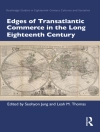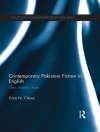This book brings an original and innovative approach to a much-misunderstood aspect of the Cuban Revolution: the place of literature and the creation of a literary culture.
Based on over 100 interviews with a wide range of actors involved in the structures and processes that produce, regulate, promote and consume literature on the island, the book breaks new ground by going beyond the conventional approach (the study of individual authors and texts) and by going beyond the canon of texts known outside Cuba. It thus presents a historical analysis of the evolution of literary culture from 1959 to the present, as well as a series of more detailed case studies (on writing workshops, the Havana Book Festival and the publishing infrastructure) which reveal how this culture is created in contemporary Cuba. It thus contributes a new and complex vision of revolutionary Cuban culture which is as detailed as it is comprehensive.
Cuprins
Acknowledgments
Glossary of acronyms and abbreviations
Glossary of Spanish words and phrases with particular Cuban usage
Introduction
1. Locating literary culture in the trajectory of the Revolution
2. Understanding literary culture in the Revolution
3. 1959-61: the first flush of revolution
4. 1961-89: the years of radicalisation and consolidation
5. 1990s-2000s: the years of crisis and reassessment
6. The path to becoming a writer in contemporary Cuba: The role of the
Centro de Formación Literaria Onelio Jorge Cardoso and the movement of talleres literarios by Meesha Nehr
7. The history of a novel: Alberto Ajón León’s ¿Qué bolá? (What’s Up?)
8. The Feria Internacional del Libro de La Habana
Conclusion
List of interviewees
Bibliography
Despre autor
Antoni Kapcia is Professor of Latin American History at the University of Nottingham












